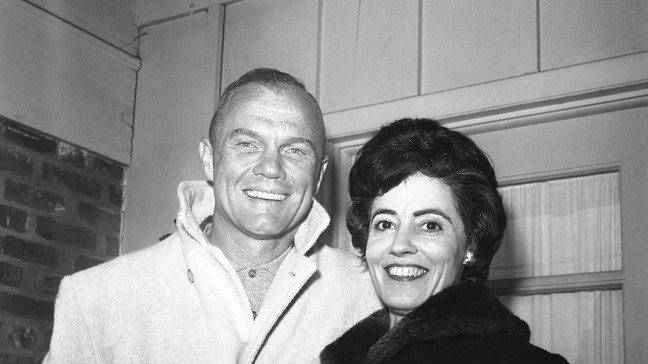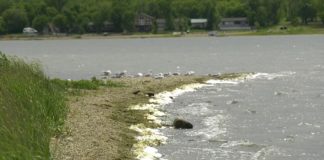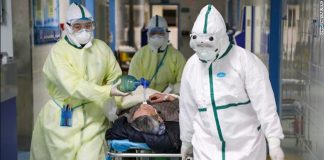She lived her entire life with a man who became universally revered, but to millions across the globe, Annie Glenn was her own kind of hero.
The wife of John Glenn, the former astronaut and U.S. senator, died early Tuesday at a nursing home near family in St. Paul, Minnesota, from complications of COVID-19. She was 100.
Annie, as everyone knew her, lived in the shadow of fame but emerged in midlife to become an inspiration for people with disabilities around the world by overcoming the chronic stuttering that afflicted and limited her during the years her husband was becoming a household name.
– Mnuchin: ‘No workers should give their lives’ to boost GDP, stock market
Treasury Secretary Steve Mnuchin said no worker should die in order to boost the U.S. economy. Mnuchin was responding to a question in an exchange with Sen. Sherrod Brown, D-Ohio, during a hearing on the coronavirus relief legislation.
“How many workers should give their lives to increase the GDP or the Dow by 1,000 points?” Brown asked.
“No workers should give their lives to do that, Senator, and I think your characterization is unfair,” Mnuchin replied.
Federal Reserve Chair Jerome Powell testified Tuesday that the Fed and Congress “may need to do more” to help revive the economy.
– As some states reopen, studying sewage could help stop pandemic
In cities across the U.S., monitoring systems relying on human waste now exist that scientists hope will provide an early warning if coronavirus infections reemerge as communities in some states cautiously reopen.
Over the past few months, private companies and university researchers have partnered with communities to collect sewage at treatment plants and test it for the presence of the novel coronavirus. The results are reported back to municipal governments and state health officials.
Testing wastewater can reveal the presence of the coronavirus and show whether it’s increasing or decreasing in a community, said Ian Pepper, a professor and co-director of the University of Arizona’s Water and Energy Sustainable Technology Center.
Although they cannot determine the exact number of COVID-19 cases from the wastewater, some researchers said they can estimate the potential case count based on the amount of genetic material detected, the number of customers per system and the volume of wastewater generated.













